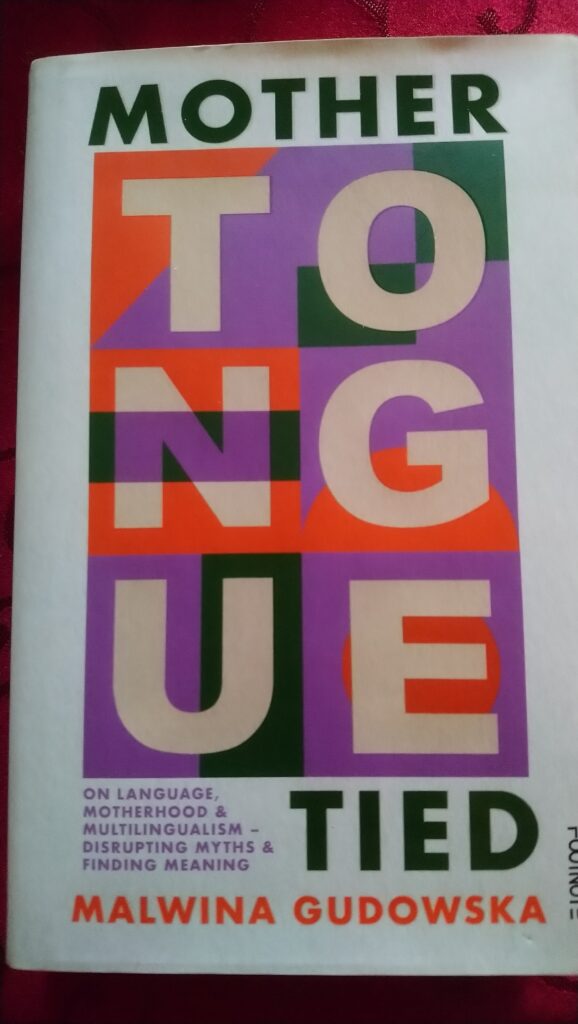
It wasn’t until I began to read this book that I thought about how many people I know who are bringing up a child in a country where the dominant language is not their own. From relatives to friends to cafe owners, every day I am interacting with people who are dealing with this contradiction. Talking about this book with friends provoked a lot of interesting discussion.
Written by Malwina Gudowska, a writer and linguist, this is a fascinating exploration of what it means to try to raise a child to be bilingual, and the difficulties and joys. The contradiction of wanting to give a child their heritage, whilst being told it will slow development to learn two languages at once, that a first language is all right at home but the dominant language of school is the important one. And language turns out to be a feminist issue too; a good mother gives her child the gift of another language, but also a bad mother holds her child back by not focussing on just one. Mothers can’t win, either way it seems to be their fault. Fathers don’t get the same blame.
The author has the particular difficulty that the language she is trying to raise her children in is not even her own main language. As a child immigrant herself to Canada with her Polish parents, she explores her struggle to keep Polish alive for the children, without turning it into a chore for them, whilst obviously very much an effort for her. She finds herself reverting to English when she gets cross with them, and having to look up the Polish words for parts of a toy truck. Later on Polish becomes their secret language, with her son dumbfounded on a visit to relatives when everyone else can understand them. She feels relief in not being the only person with the care of parenting their language.
There are moving stories of parents who choose not to communicate with their children in their own first language so as not to disadvantage them, but then finding the lack of a shared dominant language a barrier between parent and child. One woman, brought up only speaking Danish, finds her only way of communicating her mother’s Faroese language to her own daughter is through a half-remembered lullaby.
I can accuse myself of being very insensitive to the issue in the past, often wondering why immigrants do not rush to learn English, without thinking that language has an importance beyond communication, and that it might mean the loss of identity, connection to homeland, to history, and to family you have left behind.
MOTHER TONGUE TIED by Malwina Gudowska pub Footnote Press ISBN 978-1-804-44079-7 @ £16.99
